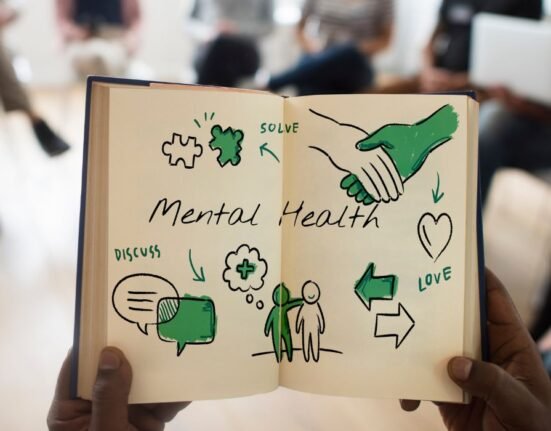Self-isolation can be defined as a state or condition in which the person prefers to stay away from others, for a certain period, willingly. It can be exercised by means of not attending social events, family or friends together or not taking an active part in one-to-one or group interactions and discussions.
Today, when the world is progressing at a faster pace, it becomes a general human tendency to isolate themselves from the chaos and demands of the external society. It helps them to take some breaths of relief while being away from everyone, enjoying one’s own company. It should be mentioned that isolating oneself from outward affairs for some time may be healthy as it helps one to cope better with their surrounding environment, in the following ways:
- To boost one’s sense of independence, rather than self-independence.
- Through buying some time for one’s sense of self to thrive in the bosom of peace.
- To be able to regulate one’s own emotions, and devise ways to channel them effectively.
- By allowing one to organic and reorganize their thoughts judiciously, without being overpowered.
- To look back at one’s behaviours and allow one’s mind with the time and honestly to rectify the wrong actions and modify the right ones.
However, these positive changes can be possible only when the person him/herself is mature, self-controlled and in the right state of mind. ‘A right state of mind’ is essential for everyone to exercise their cognition, connotation and affections in the right direction. If that’s not the case, then self-isolation can result to be equally detrimental for the person practising it, and thus may consequentially lead to self-harm in the worst cases. In general, self-isolation is found to have more negative results, as people do it when they are depressed, passive, hopeless or in any other negative state of mind.
Reasons that force individuals to Isolate themselves
A person may be inclined to isolate themselves from society or from any situation as an immature response of being defensive towards their self-esteem. In other words, self-isolation can be said to be an ineffective defence strategy that people are known to commonly implement under situations that target or challenge their sense of self-esteem, or any other insecurity. There are about 16 reasons that force individuals to isolate themselves in question their sense of self and confidence:
Self-isolation is a symptom of people suffering from Depression or any other form of mental illness. If we talk about depression, then it is found to have a positive correlation with chemical and hormonal imbalances in oneself. This imbalance is again associated with feeling low, hopeless, and insecure, thus leading to withdrawal from social situations and self-isolation.
Social anxiety can be defined as an anxiety disorder, where the person experiences severe anxiety like feelings of incomprehensible uncertainty and extreme, unreasonable fear of being watched, judged or criticized by others in social situations. It brings about a lot of dysfunction and ‘clinically significant impairment’ for them, in carrying out their regular activities. Under such conditions, self-isolation appears to be a safe option to rely on.
When a person feels alienated (that is they feel lonely, without any friends or company to enjoy or hang out with), they feel emotionally detached. It might seem like they don’t fit in or that others don’t understand or care about their feelings or existence. It may also make them feel like they are not likeable or attractive enough to be friends with them. Feelings of alienation can be a major reason why someone wants to isolate their self. Being away from the company of others and choosing their so-called self-validation is what they would prefer to approach others and forming a company.
Self-isolation can be the result of constant trauma being accumulated over the years from being brought up in a toxic family. A toxic family is one where the members of the family don’t share cordial relationships, leading to intense verbal, emotional or physical abuse.
Experiencing grief, like losing a loved one, being fired from one’s hard-earned job, undergoing separation from spouse, separation of parents, being assaulted or some other form of experience may be a potential reason for self-isolation. It is normal for a grieving person to want to isolate themselves from all forms of social interaction for some time. This not only helps them to accept their reality with peace but also helps them to cope better with their grief.
Financial stress like being incapable of providing for one’s own family and meeting their needs, losing finances over some scheme or not being underpaid for a prolonged period can also result in self-isolation. These factors may lead to shame, guilt, constant self-blaming and struggle to overcome this stress, over and over again. This may cause mental exhaustion and an increased need to be isolated.
Moving to a new place for studies, work, marriage, etc. may result in feelings of self-isolation. This happens due to missing their old company, neighbourhood and comfort zone, accompanied by feelings of anxiety and fear of not being able to adjust to their new place and surroundings.
Catastrophic thinking like imagining the worst scenarios (like accidents and deaths) happening to the person may lead to self-isolation. The greater the extent to which one feels that one would get into some unimaginable (rather, very much imagined) catastrophe, the more one prefers to isolate oneself from the whole world. We can attribute this behaviour to the person’s probable cognitive distortion.
After undergoing intense and prolonged periods of stress, physical or psychological, the bodily systems of the person become so exhausted and unresponsive, that they are unable to face any new stressor during this period. This phase is called Burnout. During this period, the person might want to take some for refreshing their self, by isolating them from the external world.
Phobia is another psychological disorder that is characterized by unreasonable and extreme fear towards some stimuli. People, who face clinically significant distress due to their phobia, tend to feel better and safe when alone, i.e., self-isolated. Embarrassment or shame due to any reason (say, for bodily insecurities or the way one speaks) may cause a person to choose self-isolation over experiencing that same embarrassment over again.
Emotional pain is another cause of self-isolation. Emotional pain can never be explained or compared in terms of anything that’s physical. When someone is experiencing emotional pain, they wish to do so in isolation, where there would be no one criticizing or judging them for who they are or what they are feeling. Feeling unsafe in one’s own house, neighbourhood, school, workplace, group of friends or in any other known company, may trigger feelings of self-isolation.
Often social media exploits the true feelings and appearance of a person and presents them in a way that could be anything similar or different from their true self. This discrepancy is greatly responsible for violating the self-esteem of an individual, to such an extent that they would be immensely active in social media, but self-isolated in real. Facing struggle, abuse or any other hurtful experience in relationships may lead to self-isolation in individuals.
Being physically sick (by flu, fever, etc) is commonly accompanied by tiredness, physical discomfort, lack of concentration, lack of emotional well-being and so much more. It often makes the person seek self-isolation, where they would be at ease and can relax peacefully.
The Art of Healing
Healing from any problem or difficulty is a long and persistent process. It is marked by perseverance, patience and resilience of the individual to fight with their difficulties so that they can emerge to be stronger and healthier to deal with similar problems more effectively. Self-isolation also requires a lot of patience and willpower to heal from. 7 steps could be outlined to break up the habit of self-isolation:
- To recognize and acknowledge that one has a habit of self-isolation, including one’s willpower to heal from it.
- To make up your mind to get into the world confidently.
- To get engaged in recreational activities, with friends and families, slowly and steadily.
- To take small steps, one by one, to prepare one’s mind for taking steps to ensure a healthy change in their life.
- Having a sense of compassion, belief, respect and confidence in oneself, encourages the healing process by stepping up for it.
- Last but not least, if the person feels too overwhelmed and finds it extremely distressing to fight their feelings of self-isolation
- The most important way of combating feelings of self-isolation is to meet and interact with like-minded people, thus facilitating the process of social interaction and reducing the process of social anxiety.
Although professional help could do wonders for the person suffering from self-isolation and its related difficulties, the person needs to be willing to make healthy changes in their life, actively and optimistically. Healing is a qualitative process, which is possible when the person is :
- Optimistic to believe in themselves
- Able to counter their negative thoughts
- Willing to learn effective coping strategies
- Strives to be goal-directed under all circumstances.
- Confident enough to continue the process of change
- Determined to practice mindfulness techniques persistently in the long run
- Accepting the efforts of their social systems trying to incorporate them in social interactions and participative activities.
Every individual faces situations in their life where they find their existence standing on the edge. It becomes hard for them to be able to accept their self, being a misfit to their perceived admirable world. In such situations they tend to self-isolate, thinking it is the best option for them and for the rest of the world. In this way, this cycle keeps on going. It is the endurance and the willpower of the individual to deal with this difficulty and lead a healthy life.
References +
MacFarlane, N. (2023, September 8). 16 reasons why you isolate yourself from everyone who cares about you. A Conscious Rethink. https://www.aconsciousrethink.com/19697/why-you-isolate-yourself/
https://www.psychologytoday.com/us/blog/a-deeper-wellness/202401/breaking-bad-how-to-break-up-with-the-habit-of-being-alone













Leave feedback about this